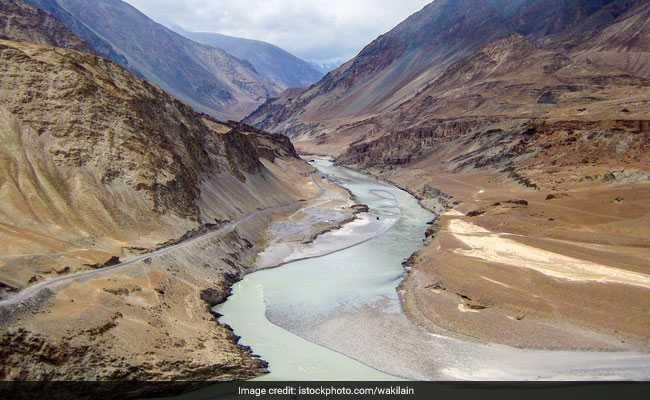This process would also update IWT to incorporate the lessons learned over the last 62 years.
New Delhi:
India has today issued a notice to Pakistan for modification of the Indus Waters Treaty (IWT) of September 1960 following Pakistani “intransigence” on its implementation, sources said, adding that the notice was conveyed to the neighbouring nation on January 25 through the Commissioners for Indus Water as per provisions of the treaty.
The objective of the notice for modification is to provide Pakistan an opportunity to enter into intergovernmental negotiations within 90 days to rectify the material breach of IWT. This process would also update IWT to incorporate the lessons learned over the last 62 years.
The action was necessiated as Pakistan has refused to discuss and resolve the issue of India’s Kishenganga and Ratle Hydro Electric Projects (HEPs) for the last five years despite India’s efforts, sources said.
Pakistan had in 2015 sought a neutral expert to examine its technical objections to India’s Kishenganga and Ratle Hydro Electric Projects (HEPs).
However, it withdrew unilaterally the next year and proposed that a Court of Arbitration adjudicate on its objections. Two simultaneous processes are in contravention of graded mechanism of dispute settlement. India then made a separate request for the matter to be referred to a neutral expert.
Government sources told news agency PTI that despite repeated efforts by India to find a mutually agreeable way forward, Pakistan refused to discuss the issue during the five meetings of the Permanent Indus Commission from 2017 to 2022. At Pakistan’s continuing insistence, the World Bank has recently initiated actions on both the neutral expert and Court of Arbitration processes, they said.
India and Pakistan signed the treaty in 1960 after nine years of negotiations, with the World Bank being a signatory of the pact.
The treaty sets out a mechanism for cooperation and information exchange between the two countries regarding use of waters of a number of rivers. It gives control over the waters of the three “eastern rivers” — the Beas, Ravi, and Sutlej — to India, while control over the waters of the three “western rivers” — the Indus, Chenab, and Jhelum — to Pakistan. India has about 20% of the total water carried by the Indus system while Pakistan has 80%.
The treaty allows India to use the western river waters for limited irrigation use and unlimited non-consumptive use for such applications as power generation, navigation, floating of property, fish culture, etc. It lays down detailed regulations for India in building projects over the western rivers.
The Indus Waters Treaty is considered one of the most successful water sharing endeavours in the world today.







